Does coffee ice cream have caffeine? Coffee ice cream is a delicious paradox—combining the creamy sweetness of ice cream with the rich, bold flavors of coffee. For those who love coffee but crave a cool, sweet treat, coffee ice cream is the perfect compromise. However, a common question often arises: Does coffee ice cream contain caffeine?
And if it does, how much is in each serving? These questions are essential for coffee lovers trying to manage their caffeine intake, parents who want to offer a treat to their kids, or anyone seeking clarity on how this dessert might affect their evening routine. In this article, we will explore everything there is to know about caffeine in coffee ice cream, including its origins, caffeine content, health considerations, and some interesting variations.
What is Coffee Ice Cream?
Coffee ice cream is a type of ice cream that incorporates real coffee, coffee flavoring, or both into the mix. This blend gives it a distinct, aromatic taste that resembles a sweetened iced coffee or latte. Coffee ice cream can be made in many ways, including brewed coffee, instant coffee granules, or even espresso powder. The choice of coffee ingredient and the amount used can significantly influence the ice cream’s flavor and, more importantly, its caffeine content.
The flavor profile of coffee ice cream varies widely depending on the type of coffee used. It can be bold and intense, like a dark roast coffee, or milder and creamy, mimicking a sweetened latte. Many popular brands also enhance their coffee ice cream with swirls of chocolate fudge or bits of toffee, creating a gourmet treat that’s hard to resist.
Does coffee ice cream have caffeine?
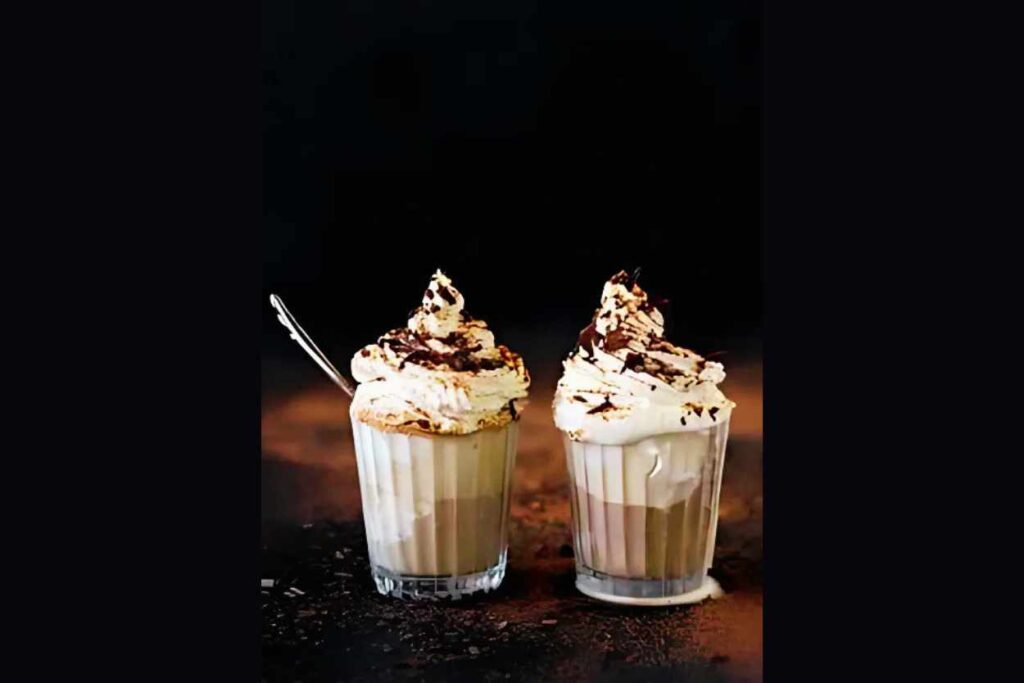
To address the central question, most coffee ice creams contain caffeine. The caffeine comes primarily from the coffee or coffee extract that gives the ice cream its signature taste. However, the caffeine content can differ based on the brand, recipe, and serving size. Let’s break this down:
• Brewed Coffee vs. Instant Coffee:
• Coffee ice cream made with brewed coffee generally has less caffeine than cream made with concentrated espresso or instant coffee. Instant coffee is highly concentrated and thus can add more caffeine per scoop. Similarly, espresso powder, which is also highly concentrated, can significantly increase caffeine levels.
• Commercial Brands vs. Homemade:
• Depending on the brand, the caffeine content of commercially available coffee ice creams can range from minimal amounts (less than 5 mg per serving) to over 30 mg per serving. Homemade versions can be tailored to your caffeine preferences by adjusting the amount and type of coffee used.
How Much Caffeine is in Coffee Ice Cream?
If you’re concerned about caffeine intake, it’s essential to understand how much caffeine is typically found in coffee ice cream. On average, a half-cup serving of commercially available coffee ice cream contains between 15 to 30 milligrams of caffeine. To put this in perspective, an 8-ounce cup of brewed coffee contains anywhere from 80 to 100 milligrams of caffeine. So, while coffee ice cream does have caffeine, it usually doesn’t compare to a full cup of coffee in terms of stimulant content.
Let’s compare caffeine levels in some popular brands:
• Ben & Jerry’s Coffee, Coffee Buzz Buzz Buzz!: This flavor contains about 45 mg of caffeine per half-cup serving, on the higher end of the spectrum. The name suggests an extra jolt of coffee, reflecting the caffeine content.
• Häagen-Dazs Coffee Ice Cream: Häagen-Dazs is known for its bold coffee ice cream flavor, and each half-cup serving contains around 29 mg of caffeine.
• Breyers Coffee Ice Cream offers a milder caffeine option, with approximately 15 mg of caffeine in a half-cup serving. These examples show the variability in caffeine content among brands. Generally, if an ice cream flavor name emphasizes “buzz,” “espresso,” or “double shot,” it’s likely to have a higher caffeine content.
Caffeine’s Impact on the Body: How Much is Too Much?
Understanding how much caffeine is in your coffee ice cream is essential because caffeine can affect people differently. Sensitivity to caffeine depends on various factors, including age, weight, overall health, and even genetics. For some, even a tiny amount of caffeine late in the day can disrupt sleep. For others, moderate amounts have little to no impact.
The FDA recommends that adults limit their daily caffeine intake to 400 mg, which is roughly equivalent to the amount in four 8-ounce cups of coffee. Due to their smaller body sizes and varying sensitivities, caffeine recommendations for children are much lower. A single serving of coffee ice cream is unlikely to push adults beyond their caffeine limits, but it could have a more pronounced effect on children or those sensitive to caffeine.
Can Kids Eat Coffee Ice Cream?

This is a common concern among parents. While most coffee ice creams contain moderate amounts of caffeine, a half-cup serving is likely acceptable for children regarding caffeine intake. If your child is susceptible, offering them a smaller serving or opting for a flavor without coffee may be wise.
A 11 ounce Coca-Cola 33 mg of caffeine. Some brands of coffee ice cream may have a caffeine content equal to or less than that of Coca-Cola.
Decaffeinated Coffee Ice Cream: Is It a Thing?
For those who love the taste of coffee but want to avoid caffeine, decaffeinated coffee ice cream is an option. Some brands offer decaffeinated versions using decaf coffee or coffee flavoring without added caffeine These options offer the delightful flavor of coffee ice cream without the stimulating effects of caffeine. Decaffeinated coffee ice cream, like decaf coffee, is not entirely caffeine-free, but the amounts are usually negligible.
How to Make Caffeine-Free Coffee Ice Cream at Home

If you’re interested in making coffee ice cream without caffeine, it’s relatively simple. Here’s a basic recipe idea:
• Ingredients:
• 2 cups heavy cream
• 1 cup whole milk
• ¾ cup sugar
• Two tablespoons decaf instant coffee or decaf brewed coffee (adjust to taste)
• A pinch of salt
• One teaspoon of vanilla extract
1. Remove from heat and stir in the heavy cream, salt, and vanilla extract.
2. Refrigerate the mixture for at least 2 hours, or until it’s thoroughly chilled.
3. Follow the preparation instructions, then transfer the mixture into the ice cream maker.
This recipe creates a creamy, decaf coffee-flavored ice cream that satisfies your craving without the caffeine buzz.
Health Considerations: Weighing the Pros and Cons
For many people, coffee ice cream is a treat to be enjoyed in moderation. However, it’s essential to know how much caffeine is in each serving for those who need to be mindful of their caffeine intake—such as pregnant women, people with heart conditions, or those with sleep issues. Although the caffeine content in coffee ice cream is lower than that of brewed coffee, multiple servings can still accumulate a significant amount.
Caffeine Alternatives for Ice Cream Lovers
If you enjoy experimenting in the kitchen, other flavors mimic the richness of coffee without the caffeine. For instance, carob powder or chicory root can replicate the roasted taste of coffee and is entirely caffeine-free. You can use these alternatives to create a similar flavor profile in homemade ice creams.
Conclusion
Coffee ice cream is a delightful indulgence that merges the boldness of coffee with the creamy, sweet goodness of ice cream. Yes, most coffee ice creams do contain caffeine, but typically in lower amounts than a cup of coffee. The caffeine content can vary depending on the brand, recipe, and serving size, so it’s important to check the labels if you’re monitoring your intake.
While the caffeine in coffee ice cream may not be enough to keep most adults awake, it’s still a factor to consider, especially for children or those sensitive to caffeine. Whether you enjoy the slight buzz of coffee ice cream or prefer a decaf version, understanding what’s in your dessert allows you to savor it confidently. Coffee ice cream transcends being just a dessert; it offers a sensory experience that evokes a sense of nostalgia for coffee lovers. So, the next time you scoop into a bowl of this creamy treat, you can appreciate not only the flavor but the balance of caffeine that makes coffee ice cream uniquely enjoyable.


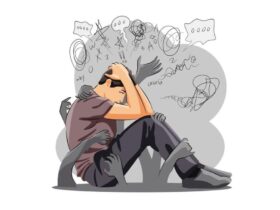
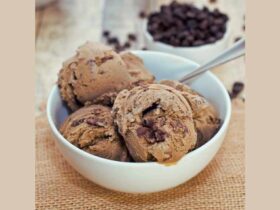




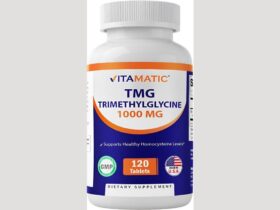
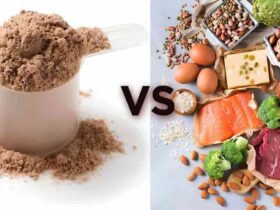
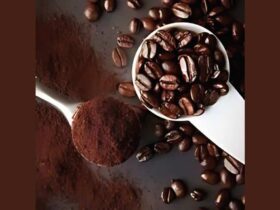



Leave a Reply